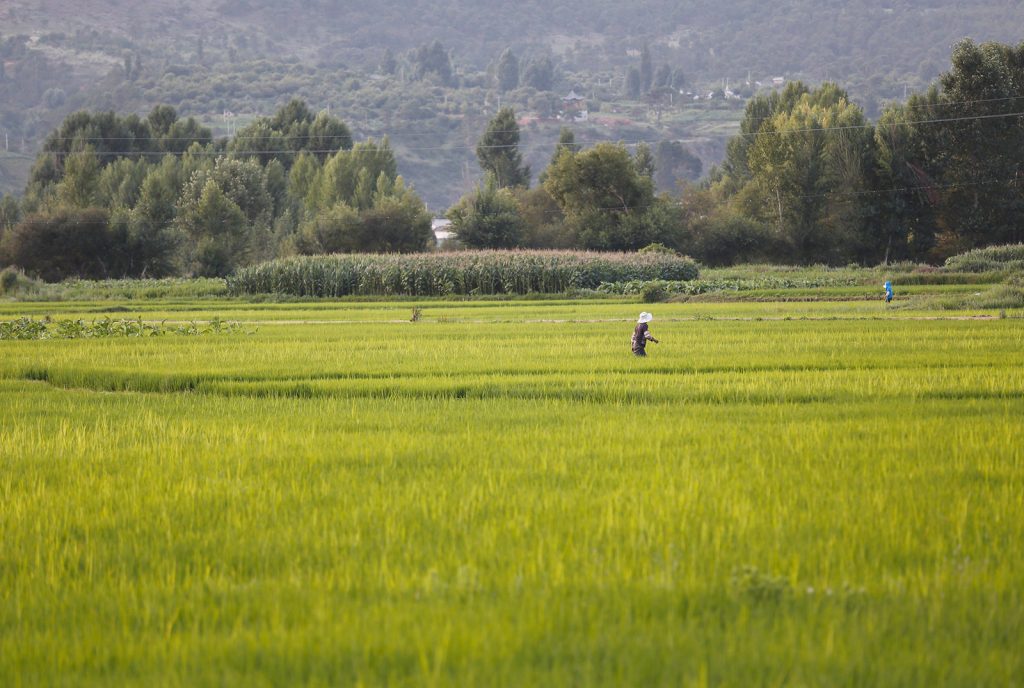
Recognizing the inherent equality of all living beings, and having gratitude, love, and respect for each and every person – these are core values in Buddhism, and very important teachings to practice.
Dharma Master Cheng Yen
Yet how can we awaken a heart of equality and positive approach towards all living beings, which Dharma Master Cheng Yen teaches are of paramount importance in Buddhism?
Cultivating the Four Infinite Minds, also known as the Four Immeasurables (Sanskrit: apramāṇa) – namely, Loving-Kindness, Compassion, Joy and Equanimity – is a principal method, and central to the Tzu Chi Path. These sublime and boundless virtues give rise to a benevolent attitude towards each and every person, where we can even face negativity without being affected:
Our minds will be unaffected and we will say no evil words. We will remain sympathetic to that person's welfare, with a mind of good will, and with no inner hate. We will keep pervading him with an awareness imbued with good will and, beginning with him [or her], we will keep pervading the all-encompassing world with an awareness imbued with good will equal to space – abundant, expansive, immeasurable, free from hostility, free from ill will.
Majjhima Nikaya: Kakacupama Sutta
Among the Four Infinite Minds, Equanimity (Sanskrit: upekṣā) is key in helping us maintain an inner stability or evenness of mind in regard to others. The Sanskrit term upekṣā can be translated as to ” look over,” “not take notice,” or “disregard.” However, this isn’t synonymous with indifference or unconcern for others; instead, it’s an inner equipoise, where we strive to be free from control by the Three Poisons of attachment, aversion and ignorance.
Just as a rocky mountain is not moved by storms, so sights, sounds, tastes, smells, contacts and ideas, whether desirable or undesirable, will never stir one of steady nature, whose mind is firm and free.
Anguttara Nikaya Sutta VI:55
Equanimity is also a support for staying present in the moment and unstirred by what are called the Eight Worldly Winds: praise and blame, success and failure, pleasure and pain, fame and disrepute.
As a solid rock is not shaken by the wind, wise people falter not amidst blame and praise. Wise people, after they have listened to the laws, become serene, like a deep, smooth, and still lake. Good people walk on whatever befall, the good do not prattle, longing for pleasure; whether touched by happiness or sorrow wise people never appear elated or depressed.
Dhammapada: Verses 81-83
For socially engaged Buddhists such as Dharma Master Cheng Yen, equanimity includes the ability to see all people as equal, shedding the faults of prejudice and favoritism, and tempering the tendency to cherish oneself above others.
Master Cheng Yen points out that this truth of equality is at the heart of religion:
The truth is that all human beings, no matter their race or religion, are in essence equal. Religion, in fact, is about the true principles of life. When a religion offers a correct teaching of these principles, by following the teachings, people will be able to do a lot of good and benefit all humankind. But, some people, speaking in the name of religion, use it to establish a sense of supremacy or superiority.
True, authentic religions always hope people can understand that all human beings are inherently equal and possess the same true nature. They will teach people that they too are capable of achieving the kind of unsurpassed wisdom that the most exalted sage or holy person has achieved – in other words, each and every one of us has the same capacity to become a Buddha, an ‘Enlightened One’.
In Master Cheng Yen’s heart, this fundamental principle of equality is a call to action, imbued with gratitude, respect, and love:
We must care for people with genuine love, and truly do it without any self-interests. Our motives must be unselfish. As all people are inherently equal, we need to respect each and every person. We also need to be grateful to every person, because it is only with every person’s support and contribution that we have the means to do good deeds that can help people. So, we need to learn to have gratitude and respect for everyone.
The sections in italics consist of material written by the Jing Si Abode English Editorial Team, based on Dharma Master Cheng Yen’s conversations with visitors in Chinese.
































